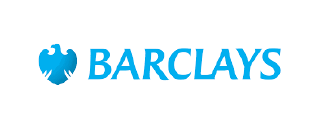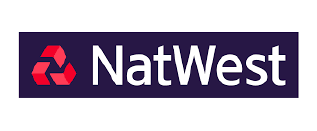What is a flexible loan?
There are hundreds of different types of loans products on the market, some more flexible than others. Flexible loans are sometimes interchangeably called personal loans and are defined as an unsecured loan with a fixed repayment date and usually comprise of a fixed-rate agreement.
The key feature of a flexible loan is flexible repayment terms. This means that you are able to decide how much of your loan (a percentage-value) you repay each month. For example, you may have a repayment term of 10 months, and you may wish to repay 20% of this amount in March and only 5% in July as opposed to 10% every month. It is important to remember that usually, a minimum monthly repayment amount will apply and will vary between lenders.
Flexible loans may also offer the following:
- Option to repay early
- Choice of exact repayment dates
- Apply online, on any device
Typically lenders will charge an early repayment fee if you decide you would like to pay-off the entirety of your loan before the last date of your repayment term. Some flexible loans, however, do not charge for this. For this reason, they may be a useful product to people with unfixed monthly salaries (perhaps one month you worked a lot of overtime) or people who may benefit from other legitimate sources of income during their loan period.
Why should I get a flexible loan?
If you are interested in getting a loan, but put-off by the restrictions and terms that are applied to certain types of loans (such as no allowance for early repayment) then a flexible loan may be the right product for you. Flexible loans allow for you to select the amount you would like to borrow and agree with your lender on a reasonable repayment period depending on your personal circumstances and the amount you propose to borrow. Interest rates are often fixed annually, although terms will differ from lender to lender.
Some flexible loan lenders will allow you to increase or decrease the amount borrowed. If you are using your loan for something that cannot be accurately financed, such as for home improvement which may demand additional costs, then a flexible loan may be the most beneficial option to you.
The extra features that come with a flexible loan are often accompanied by a higher interest rate, so you should only commit to getting a flexible loan if the benefits, such as early repayment at no extra fee, outweigh the potential cost increase for you. If you are happy with unflexible terms, then a standard personal loan may be better for you.
How does our site work?
Firstly, use our free and simple comparison table to compare rates from our list of featured lenders. You can click through and apply on their website directly. Alternatively, you can provide us with a few of your details and one of our partners will get back to you as soon as possible to discuss your options.
Because we have partnered with multiple lenders, we are able to offer you the choice you deserve when it comes to finding the right loan for you. With us, you are free of the restrictions and set-rates involved in looking at a single lender.
We allow you to borrow from £50 up to £50,000 from one of our many lenders.
The main benefits of using our website include:
- No upfront fees
- We will not pass on your details to third parties without your permission
- Our site is on a secured server (https) to protect your details
- Compare rates from several competitive lenders
- Choose from over 50 different unsecured loan products
The criteria for applying
Whilst the criteria may vary between lenders, the eligibility factors include:
- Must be a UK Resident;
- Must be over 18 years of age;
- Must have a working debit account, email address & phone number;
- Must be employed, earning at least £500 per month and able to afford monthly repayments;
- Must have no history of bankruptcy, CCJs or IVAs.
What happens if your cannot repay your loan?
Failing to repay your loan may result in your credit rating being negatively impacted, which could harm your ability to access other financial products in the future. If you take out a loan that is secured against an asset, such as your home or your car, defaulting on your repayment could lead to the repossession of that asset.
Please ensure that you choose a realistic repayment term when applying for a loan with any one of our providers such that you are able to make your monthly payments. If you expect that you will not be able to make a monthly repayment, ensure to let your chosen lender know in advance. Most lenders have sympathetic policies which allow for a grace period of a couple of days if you ensure to notify them of your situation.
Our Lenders
We work with trusted brokers to give you access to a panel of leading lenders well placed to meet your needs.


















